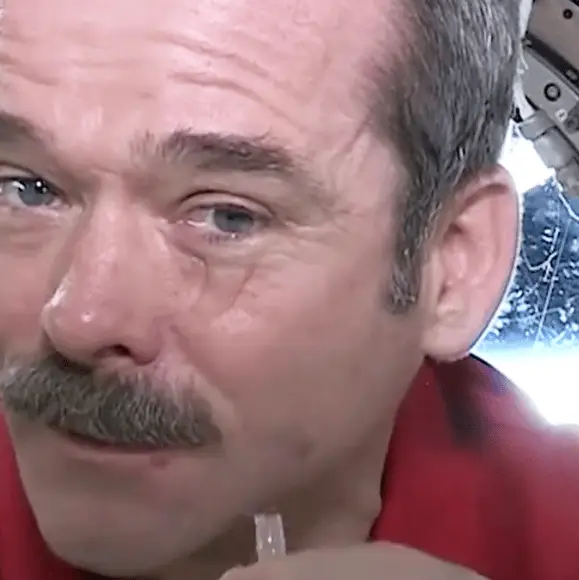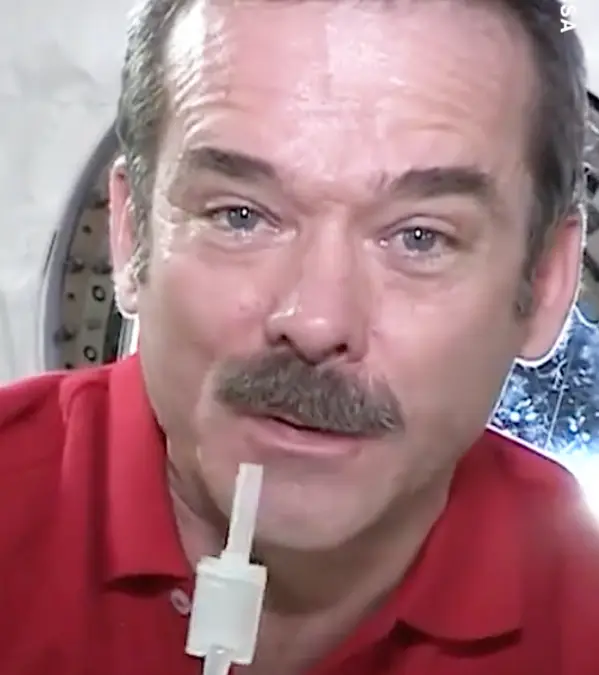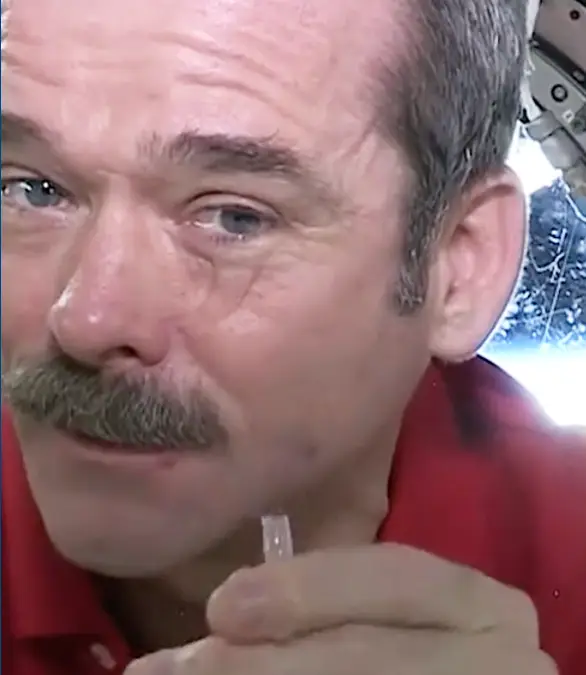
What happens when you cry in space?
Would the tears fall in a weightless space environment, or would they just float away?
Rather than wait for the sad emotions to kick in or cry on the spot, one man shows us how it's done... in space.
Canadian astronaut Chris Hadfield, commander of the International Space Station, shows viewers what happens if you shed a tear in zero gravity.
Advert
As he confirms he can't cry on command, he demonstrates with some drinking water.

In the video, Chris Hadfield squirts water into his eye using a plastic drinking water packet, pretending it's tears.
As he does this, you can see the water building up in his eyes, forming a 'ball of tears' that would show if you were crying. He then shows to the camera saying: 'my eye is full of tears.'
Hadfield then proceeds to add more liquid to show that the water builds up a bigger ball around the eye even stretching as far down to the the end of his nostril.
So more tears equals a bigger ball of water in your eye.
And there you have it. Hadfield concluded that whilst there is crying in space, 'the big difference is, tears don't fall, so grab a hanky.'
It can easily float around to your other eye and around your nose which doesn't look so pretty, so astronauts have to deal with the floating water ball by either letting it evaporate or cleaning it up.
This unique behaviour of tears in space is surprising TikTok viewers who have come across the video.

Shocked at the space physics of crying, one comment read: "that's pretty cool' and others declaring, 'what theeeeeeeee I want to try this'.
Another viewer joked: 'I’d be alright in space then don’t need no tears.'
Other TikTokers are saying that they want to go to space purely to try crying out there.
Back on Earth, tears stream down a person's face due to gravitational forces. However, in space where there's a lack of gravity, there's no force pulling them down - leading to a rather unusual sight.
Instead, they accumulate on the face and may eventually disperse as small droplets throughout the science station.
The ISS astronaut has earned a reputation for demystifying space-related queries through his channel on YouTube. Hadfield has also covered topics on space cooking, dental hygiene, and handwashing in a gravity-defying environment.